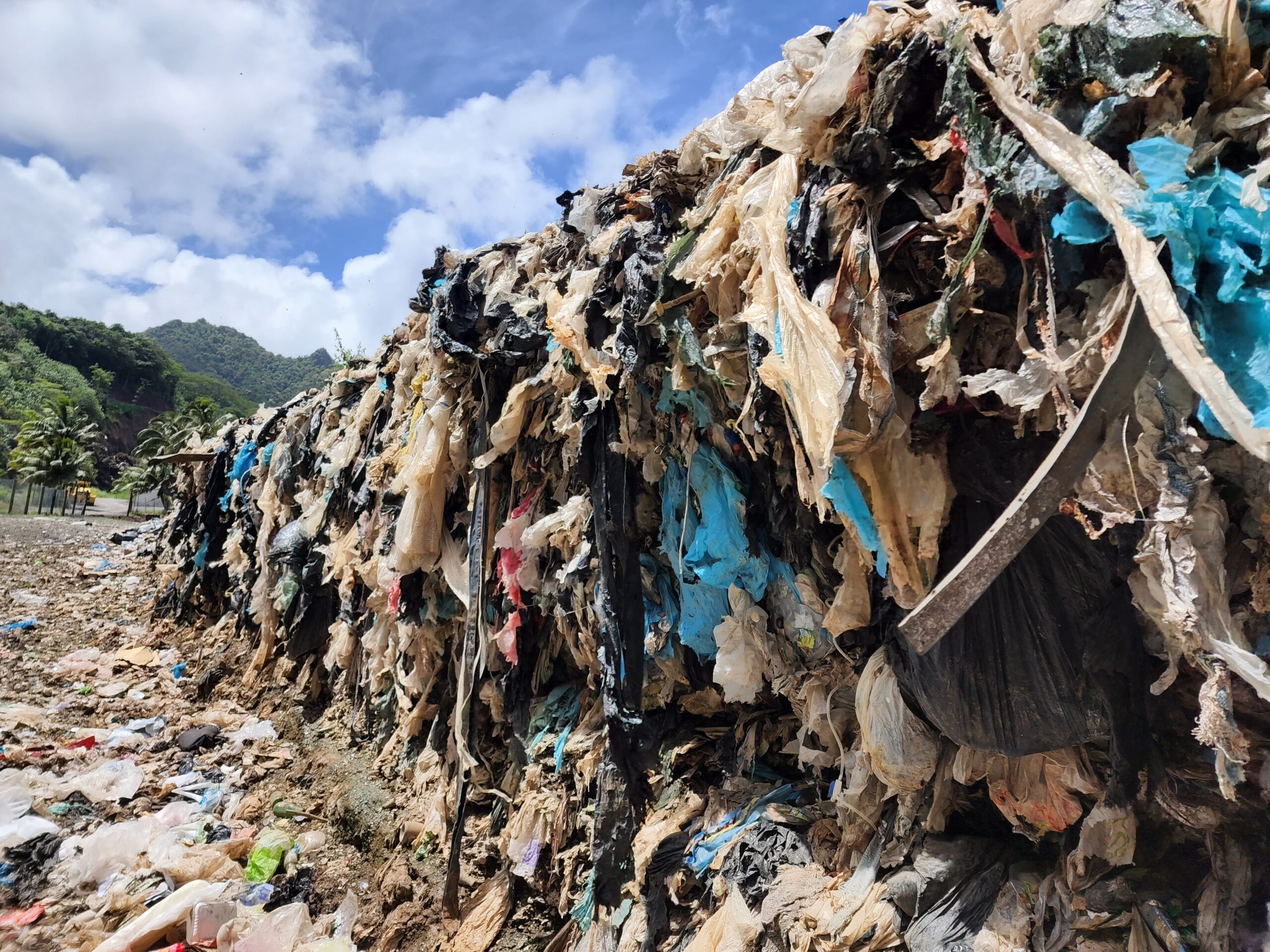Te Ipukarea Society: Who wants to be a plastic Maori?
Saturday 13 April 2024 | Written by Te Ipukarea Society | Published in Environment, National

National plans to minimise single use plastics, taking over our Ipukarea. TIS/24041220
For the past six weeks, Te Ipukarea Society has been assisting the National Environment Service develop a project aimed at reducing single use plastics (SUPs) in the food and beverage industry of the Cook Islands.
If you have any doubts about how severe this issue is for our country, we recommend that you take a trip to the Rarotonga landfill and see just what a huge mountain of plastic we are building up there for us, and our future generations to live with. Informal dumpsites in the Pa Enua are also full of plastic waste.
If the funding is approved by the Global Environment Facility, the project will start sometime in 2025, and run for five years. While there will most likely be legislative changes to restrict the amount of SUPs we can access in the Cook Islands, a large part of the project will be raising awareness among the community on ways they can reduce their plastic footprint. This article gives some ideas on how we can go about reducing the amount of SUPs we use
One of the reasons why our transition away from single use plastics may not be too difficult is that most of our imports come from companies based in New Zealand. In recent years New Zealand has passed legislation banning some SUPs being sold there, meaning we also no longer have access. This is one of the reasons you don’t see polystyrene takeaway food containers at the markets any more, having been replaced by products made from biodegradable bamboo or similar plant-based sources.
One of the biggest sources of SUPs are the bags that our sliced bread comes in. The project wants to work with the bakeries to find alternatives that are also suitable from a food safety perspective. Maybe there is a way to go back to waxed paper wrapping, which was used in NZ for sliced bread back in the 1960s. Plastic wrappers were then introduced in 1979. More research will be needed with our bakeries to find out what is possible.
Other SUPs that are already banned in New Zealand are single-use plastic produce bags. These are unsealed plastic bags that are provided by the store or retailer to pack fresh fruits and vegetables into. This ban includes single-use plastic produce bags made of recyclable plastic, biodegradable plastic and plant-based or compostable plastic. This is probably because it will be difficult to monitor whether the plastic is really biodegradable or compostable, so safer to ban the lot.
The ban however does not include a plastic bag that is, or forms, an integral part of the packaging. Examples include pre-packaged lettuce, a sealed bag of apples, a sealed bag of potatoes or leafy greens and herbs in a plastic sleeve.
Another very significant source of SUPs is of course the soft drink bottles. There is a large stockpile of these that have been crushed and bailed, but have nowhere to go! We are hopeful that ongoing talks between importers and suppliers may soon help to address this problem. However, if consumers chose to purchase their beverages in glass or aluminium cans, that would go a long way towards reducing the amount of these plastic bottles we have to deal with. If bars switched to the post-mix options, serving soft drinks and mixers from a tap, this would also help to reduce the number of plastic bottles we have to deal with.
The National Environment Service has launched an online survey to get more views on the issue of SUPs in the food and beverage sector of the Cook Islands. They have managed to secure some great prizes as an incentive for more people to do a good job at completing the survey. So if you would like the chance to win a prize from one of our very environmentally friendly sponsors (two nights at the Pacific Resort in Muri, a $100 voucher from Paradise Supplies, or a $50 voucher from Rarotonga Brewery), please click on this link https://www.surveymonkey.com/r/QYJ8LBK and do the survey.














































